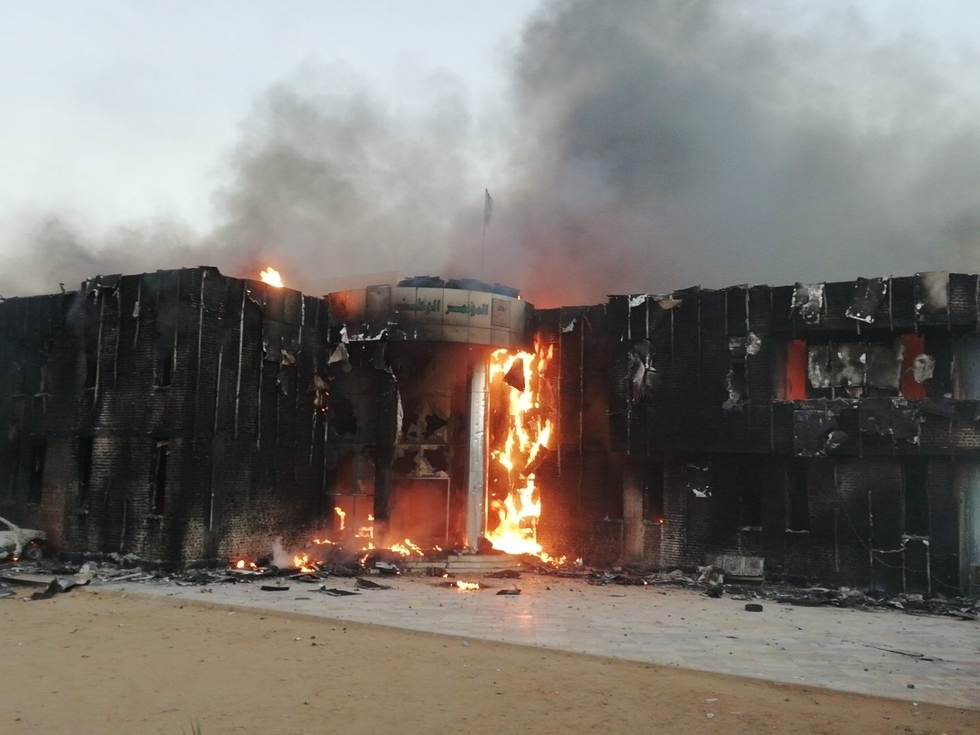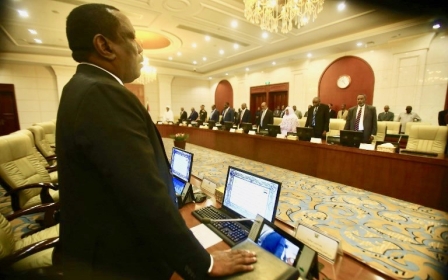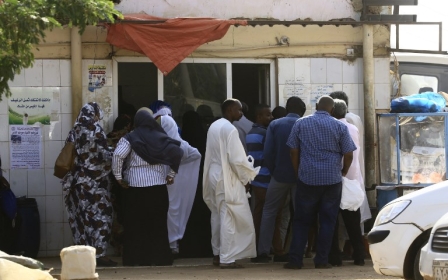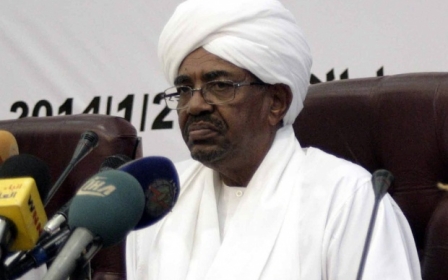Sudanese city declares state of emergency after bread protests

A state of emergency has been declared in a town in northeastern Sudan, after protesters angered by bread shortages reportedly set fire to the Sudanese ruling party's offices amid growing discontent and widespread demonstrations.
The Nile River state's security committee announced the restrictions on Wednesday after hundreds of protesters gathered in the historically significant labour town of Atbara, in northeastern Sudan.
Images circulated on social media showed the ruling National Conference Party's offices on fire, while rocks and other fires were scattered across streets at the centre of the protests.
Wednesday's protests, which were also held in the coastal city of Port Sudan, came after weeks of increasing tension over bread shortages and a proposed lifting of government subsidies on bread prices.
Sudanese media outlets have reported on student-led protests against rising bread prices since early December, while The Sudan Tribute said police used tear gas and batons to disperse gatherings across the country on Sunday, including in the capital Khartoum.
Last week, Radio Dabanga reported that callers from across Sudan said additional police officers had been deployed in anticipation of larger protests.
At least three people were killed during similar protests against rising bread prices in January.
Sudanese Prime Minister Motazz Moussa tried to reassure citizens on Wednesday, denying the bread subsidies would be lifted.
"There will be no lifting of subsidies," Moussa said. "But there will be new policies to direct subsidies to the deserving, as we cannot subsidise the financially able."
He said Sudan's budget for 2019 includes 66bn Sudanese pounds ($1.4bn) in subsidies, with a vast majority of that sum (53bn Sudanese pounds, or $1.1bn) allocated to fuel and bread.
Nicknamed the "City of Steel and Fire," the town of Atbara is historically significant for Sudanese workers because it was at the centre of the country's railway system.
The town was home to an active railway workers' union until it was dismantled in the 1980s.
Middle East Eye propose une couverture et une analyse indépendantes et incomparables du Moyen-Orient, de l’Afrique du Nord et d’autres régions du monde. Pour en savoir plus sur la reprise de ce contenu et les frais qui s’appliquent, veuillez remplir ce formulaire [en anglais]. Pour en savoir plus sur MEE, cliquez ici [en anglais].




